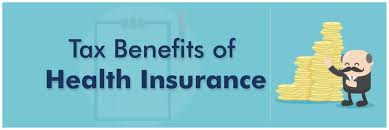Health Insurance Tax Benefits You Shouldn’t Miss in 2025

Strong 8k brings an ultra-HD IPTV experience to your living room and your pocket.
Living at the fastest pace of life with ever-growing news of medical emergencies like accidents, heart failures, and more, protecting our health has become a pressing priority. Therefore, a strong health insurance plan becomes more than a safeguard.
✍️ If rising medical costs worry you, take a look at our complete guide to health insurance, where we explain how policies cover hospitalization, surgeries, and preventive care, along with tips to select the right plan for you and your family.
It’s a pathway to financial security and also a means to trim your tax bill under the Income Tax Act, 1961. Smart use of these deductions in the upcoming financial year can meaningfully lower your taxable income.
Here’s what to keep in mind regarding health insurance tax breaks in 2025.
Section 80D: The Pillar Benefit
Section 80D allows individuals and Hindu Undivided Families (HUFs) to deduct premiums paid for health insurance for themselves, their immediate family members, and their parents. Taxpayers who opt for the older tax slabs can still benefit from this provision.
Deduction Caps Under Section 80D:
The total deduction you can claim varies with the ages of those insured.
- For yourself, your spouse, and dependent children (all below 60): up to ₹25,000.
- For parents (also below 60): you can add another ₹25,000.
- For the policyholder, partner, and any children who are all aged 60 years or more: coverage of up to ₹50,000.
- For Parents (60 years or above - Senior Citizens): An additional deduction of up to ₹50,000.
Maximum Combined Deduction
- Individual below 60, parents also below 60: You can claim a total deduction of up to ₹50,000—₹25,000 for you and your immediate family, plus ₹25,000 for your parents.
- Individual below 60, parents are 60 or older: You can claim a total deduction of ₹75,000—₹25,000 for you and your family, plus ₹50,000 for your senior-citizen parents.
- Couple with senior-citizen parents: You can claim a maximum deduction of ₹1,00,000—₹50,000 for you and your spouse, plus ₹50,000 for senior-citizen parents.
Preventive Health Check-ups
Inside the overall Section 80D limits, you can claim up to ₹5,000 for preventive health check-ups for yourself, your spouse, children, and parents. Unlike health insurance premiums, you can pay for these check-ups in cash.
Medical Expenses for Senior Citizens (without health insurance)
If a senior citizen (60 or older) does not have a health insurance policy, you can deduct their medical expenses under Section 80D up to ₹50,000 a year. This covers hospital stays, doctor fees, and medicines.
Key Takeaways for Health Insurance Premium Deductions
Payment Method: To get a tax break on your health insurance premium, always use a non-cash option. Acceptable methods include a cheque, a demand draft, net banking, debit cards, credit cards, or UPI. Cash payments are usually not accepted, except for preventive health check-up fees.
Beneficiaries to cover in Health Insurance: You can claim deductions on premiums paid for:
- Yourself
- Your spouse
- Your dependent children
- Your parents, whether dependent on you or not
Who Doesn’t Qualify:
- Premiums for your independent or working children, siblings, grandparents, or any other relatives ain’t counted.
- If your employer pays for a group health plan, you can’t claim that premium. But if you contribute your own money to that group policy, you can claim your part.
- Critical illness riders included in a life insurance policy are not eligible, as life insurance premiums fall under Section 80C.
80D Deductions are Extra: The amount you can claim under Section 80D for any health insurance comes on top of any deductions under Section 80C. Section 80C covers savings like Public Provident Fund (PPF), Employees’ Provident Fund (EPF), Equity-Linked Savings Scheme (ELSS), and life insurance premiums.
- New Tax Regime Reminder: If you choose the new tax regime, you can’t use Section 80D deductions. The new system has lower tax rates but reduces deductions and exemptions.
- Documentation: Always keep proper records, such as premium payment receipts, policy documents, and bank/credit card statements, to support your claims during income tax filing.
- Multi-year Policies: If you pay a lump sum premium for a multi-year health insurance policy, you can claim a proportionate deduction in each year of the scheme.
By understanding and using these health insurance tax benefits in 2025, you can effectively reduce your tax liability while protecting your family's health. Moreover, before you buy health insurance, consider consulting a trusted advisor or tax professional for personalised guidance.
Note: IndiBlogHub features both user-submitted and editorial content. We do not verify third-party contributions. Read our Disclaimer and Privacy Policyfor details.







